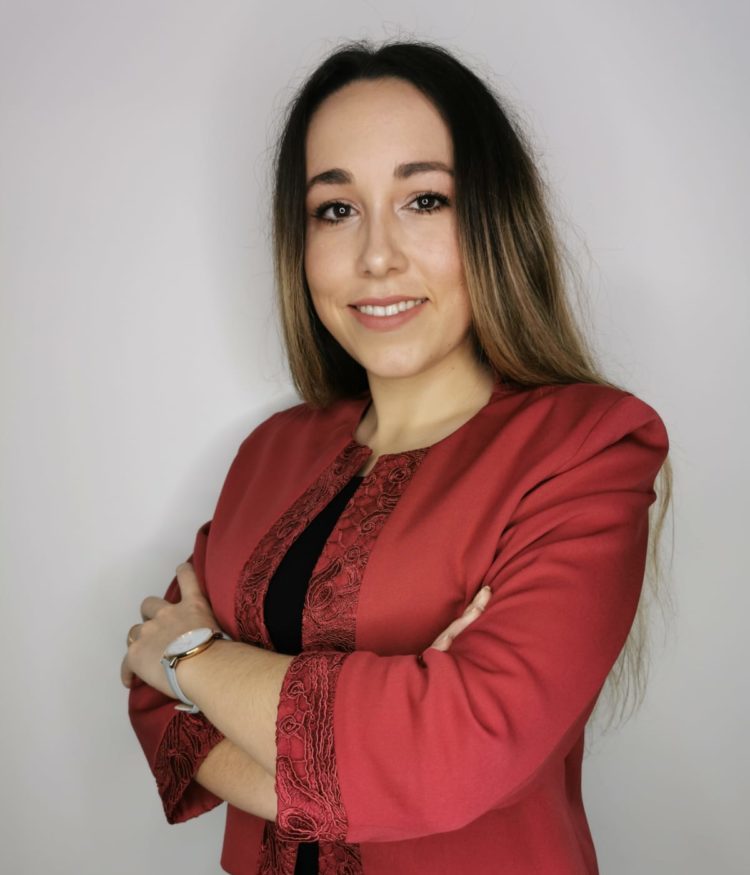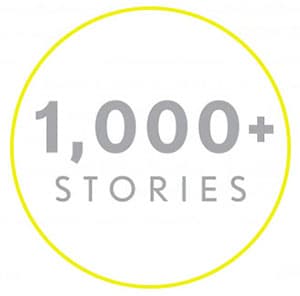
Mariona Bolohan and her husband got into the translation industry by chance. While living in Spain and selling antiques, they began translating documents that accompanied certain pieces. Eventually they started picking up more and more translation gigs and became full time translators. But Bolohan noticed some issues in the industry; many large translation agencies rely on AI, which creates flawed content – or they expect real human translators to work at a pace that is unrealistic. She felt there had to be a better approach, so she started her own translation agency, Lotuly. Today the London, England-based entrepreneur and her husband are focused on providing high quality human translation services while also building a team of translators who are well paid and able to do work they are passionate about.
Bolohan’s story, as told to The Story Exchange 1,000+ Stories Project:
What was your reason for starting your business?
Before my husband and I moved to England we were selling antiques in several markets in Spain. It was here that we translated our first documents, explaining the specifics of the items we were selling to our buyers. This led to a series of further enquiries for translations. Eventually, it got to a point where we were making more money from translating than from selling. And Robert and I realized how much we enjoyed the feeling of breaking through the language barrier and helping people to understand each other. That was our ‘aha’ moment and this is essentially where our business idea came from.
When I did freelance work I noticed that prospective clients would usually list something like the following: I’m trying to reach a new market, my copy is in English and well, it’s also translated with Google Translate but I’m not getting the ROI that I was expecting.
Boom! That’s what made us come up with a solution. You can argue there were other giant translation agencies and we didn’t stand a chance but they operate on a business model that undermines freelancers and they pester translators with mass emails trying to see who will do it cheaper and faster – that’s where we come in. We decided enough is enough, we’ve experienced that atrocious way of doing business and the only ones benefiting were agencies with deep pockets – not the clients. Clients would get bad quality, and often machine translation therefore losing money in the long run and at the same time suffering from a damaged reputation.
Big agencies would charge a lot of money and pay very little to its translators or sometimes not pay anything at all until 90 days after invoicing. We’ve scrapped that and decided to operate our translation agency by putting our translators first. We pay them upfront, they choose their place of work and time they want to do the work and they can do it remotely. We vet them, interview them and make sure they understand what we value about them. We make sure we offer human translation done by qualified experts in the subject matter. We love tech but machine translation and all these AI services like Google Translate are not sufficiently advanced in order to take over human translation. And a lot of B2B companies have seen a huge improvement in their sales by having their content translated by a human expert translator.
How do you define success?
For me, having started a business from scratch in a country where you were not born and still being profitable whilst making an impact to people’s lives and businesses and also the environment is success. Doing all that with your better half – it’s the best definition of success.
Tell us about your biggest success to date
Neither of us attended University and from the moment we stepped foot in the United Kingdom we focused on building our startup by solving a communication problem through translation. Then, we expanded little by little into building a team of language experts, and our services like localization, keyword research and even SEO translation to help other startups and big companies reach global markets in a sustainable way. We are not afraid to mention that we started small but now we’ve been on all sides, as clients, as translators and also as agency owners.
What is your top challenge and how have you addressed it?
Our business was and still is 100% bootstrapped, we’ve always reinvested what we’ve made back into the business. We’ve not been successful at securing any funding from the government or any schemes offered because we couldn’t find any suitable ones for what we do. The industry, ‘Translation’ doesn’t exist when you try to choose what category your business is so it always ends up being the odd ”other.’ Despite all that we’ve managed to stay afloat and to be fair at the beginning of the pandemic we’ve turned over the same amount we did in the previous 6 months, in just 1 month.
Another problem is that people think that just because you speak two languages that alone automatically makes you a translator, and that is not true. You may be able to translate some basic stuff but to fully immerse yourself and convey the meaning of specific content from one language to another is an art, and people study and train themselves for years in order to do that.
For us it’s a no brainer, if your copy is not in the language of your customer’s heart it will not appeal to them as much. If your copy is but it’s done with Google Translate how will your customer feel? What impression does that give them of your company? Perhaps they will think that you did not put the effort or the funds in to reach them? You see, your customers want to feel appreciated and one way you can achieve that is by allocating a budget and investing in translation, otherwise how are you going to sell your business to them?
Have you experienced any significant personal situations that have affected your business decisions?
Definitely mental health, because before COVID-19, even though we worked from home we would still go outside, go buy something from the store, meet with friends, go out for a drink, etc. When COVID-19 hit and we were unable to go outside or meet people that meant that you would be in the house/office 24/7. As an entrepreneur launching their business that meant us being in front of a screen from morning till night because we would feel guilty for stopping working when we had so much to do and we couldn’t go out so what was the alternative?
I think for a lot of business owners it made it even more difficult to focus on their mental health during the Pandemic, at least this is one of the main challenges we faced. Also the uncertainty, a lot of companies went out of business because of COVID-19 so that put a lot of pressure on us to find new clients, especially in the translation industry, as translation is viewed as a commodity and not a necessity – so some businesses stopped translating their content.
What is your biggest tip for other startup entrepreneurs?
Don’t wait until everything is perfect because as a business owner it’ll never be, we delayed our launch almost a year just because we wanted to have everything perfect. In the end, there’s always so many things to do but your advantage is that your customers do not know that. So get your business out there as soon as it’s presentable and gather feedback.
Ask as many people as you can for feedback and tell them to please tell you what they like but most importantly what they don’t like, some feedback will sting a bit but it may help you to push your business forward as they may see something that you did not, that’s the raw and unfiltered feedback you are looking for in order to build a successful and robust, product, service or business.
Prioritize your mental and physical health. If you are not well no one will be able to care for your business, or what is a business if you are not able to enjoy it? Always trust your gut feeling, if something doesn’t feel right it probably isn’t. Be able to detach yourself from rejections, don’t take them personally, learn from them and move on, there is no point in thinking about it. You can’t force someone to understand the importance of your product or the good you are doing to their business and eventually the ROI. If they don’t see the value, move on to the next one.
How do you find inspiration on your darkest days?
Going for a walk through Black Park, reading the Bible, listening to the rain drops pouring on the concrete, there’s something about the sound of rain that relaxes you and exercising also helps with inspiration.
Who is your most important role model?
My role model is myself in 5 years, then myself in 10 and so forth. I strive to look up for myself and trust my skills and passion for the language industry and I want to be able to say I’m finally proud of myself and I keep looking up to myself every few years. ◼
Check out our Advice + Tips for entrepreneurs starting-up
Watch our latest videos
Subscribe to our podcast



![Leadership requires a balance of caution and kindness. [Credit: Vlada Karpovich // Pexels]](https://thestoryexchange.org/app/uploads/2021/12/leadership-qualities-2022-150x150.jpg)
